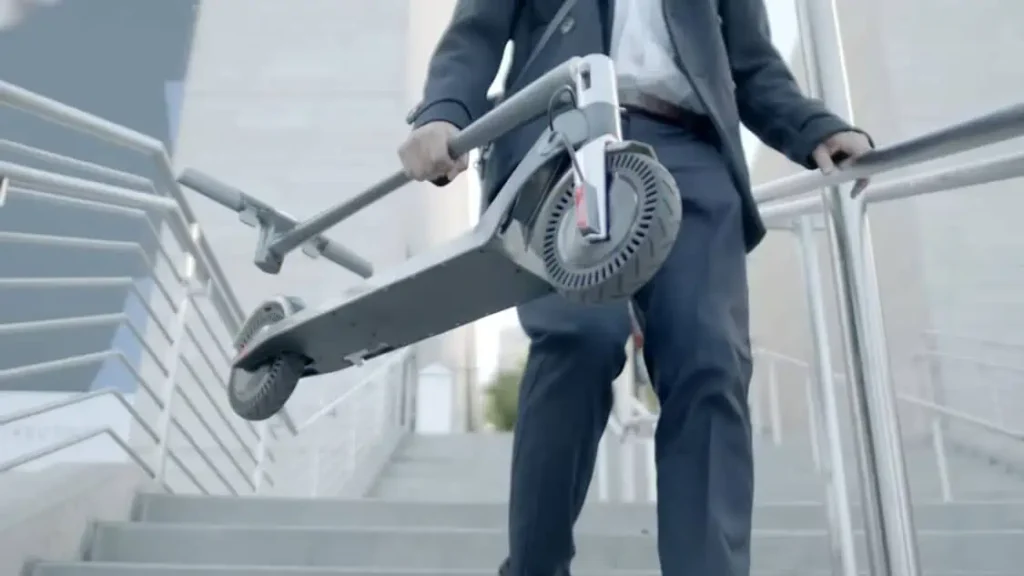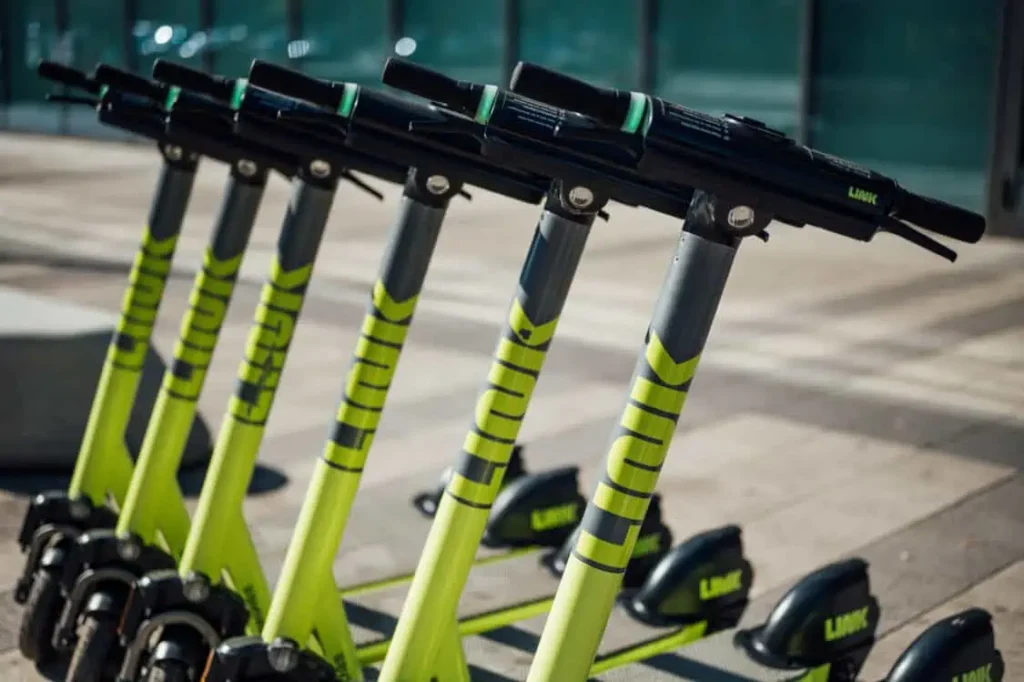Can I Bring My Electric Scooter on a Flight?
Electric scooters (eScooters or e-scooters) and electric bikes (eBikes or e-bikes), known in the EV industry as micromobility, are a large part of the electric vehicle (EV) revolution. The rising popularity of e-bikes and e-scooters in the United States bodes well for the country’s commitment to eco-friendly transportation. Electric bikes and scooters are proliferating everywhere you look on American streets. Many e-scooter owners like bringing the scooters everywhere they go, including on trips. This has raised the question of whether an electric scooter’s owner can bring their e-scooter on a plane.
U.S. FAA Regulations Allow Electric Scooters for On-Board Carriage on Airplanes, With Certain Limitations

According to the U.S. FAA regulations, electric scooters are not expressly forbidden for on-board carriage on airplanes. They can be included in checked or carry-on luggage as with other portable electronic devices, but with specific stipulations:
- Approval from the airline is mandatory for lithium-ion batteries over 100 watt-hours (Wh).
- Airlines reserve the discretion to reject these devices outright or limit them to carry-on luggage only.
- Devices with a lithium-ion battery capacity exceeding 160 watt-hours (Wh) are strictly banned as carry-on or checked luggage.
It is imperative that you contact your airline 48 hours before your flight to ascertain whether they accept an electric scooter as carry-on or checked luggage. You must also furnish the necessary documentation to the airline to secure permission to carry your e-scooter on a plane. In most cases, you will be required to remove the battery from your e-scooter before surrendering it to the airline as checked luggage prior to departure.
Most E-scooter Batteries Are Not Permitted on Airline Flights
Most laptop, phone charger, phone, and tablet batteries fall under the 160Wh threshold, thus making them permissible for air travel. However, most electric scooter batteries significantly exceed this limit. While electric scooters that operate on smaller, less powerful batteries under 160Wh are available, these are often low-powered vehicles primarily meant for children. If you possess such a scooter that falls within the permissible range, it’s still essential to check the specific rules for travel with your respective carrier. Typically, batteries are expected to be removed and stored separately in either carry-on or checked baggage. It is crucial to adhere to these guidelines to ensure a seamless travel experience and avoid any potential complications with bringing your e-scooter on a plane.
For International Flights, You Must Check IATA Rules (The International Air Transport Association)
Given the complexities and strictness of international guidelines, it’s paramount to understand their implications on traveling with lithium-ion batteries. These batteries are classified as “dangerous goods” by IATA. Their regulations mirror those of the Federal Aviation Administration:
- Lithium-ion batteries of no more than 100Wh can be carried in carry-on or checked luggage without explicit permission from the airline.
- If the lithium-ion battery is between 100Wh and 160Wh, it can be carried on board or stored in checked luggage, but only with the airline’s consent.
- Finally, any lithium-ion battery exceeding 160Wh is strictly prohibited in both carry-on and checked luggage for all passengers and crew members.
These guidelines underscore the importance of appropriate handling and cautious use of lithium-ion batteries, which helps ensure safer skies for everyone.
Different Regulations Apply if the Electric Scooter Is a Medically Necessary Mobility Device

If your electric scooter is a medically necessary mobility device, contacting your airline several days before your flight is advisable. Provide details about your scooter’s size, weight, and battery size so the airline can make necessary preparations. Arrive at the airport at least two hours before your flight to learn about additional surcharges and requirements for removing and packing the battery to bring your e-scooter on a plane.
Mobility scooters have different rules than recreational scooters. For instance, batteries usually cannot exceed 300Wh, though you’re allowed a spare battery of up to 300Wh or two extra batteries of up to 160Wh each. Keep in mind that each airline has its own set of rules and restrictions. Hence, it’s crucial to contact your carrier well before preparing for your journey. This will help to ensure a smooth travel experience.
In Most Cases, It’s Unlikely That You’ll Be Permitted to Bring Your E-scooter on an Airplane
In most instances, unless your scooter classifies as a mobility aid or is a very small, low-power vehicle, it’s highly unlikely that you’ll be permitted to bring it on an airplane. Electric scooters offer an enjoyable, economical, and eco-friendly mode of transportation, making them perfect for both familiar and new cities. However, they’re currently not suitable for air travel. With the growing popularity of electric scooters as ideal personal vehicles, it’s plausible that the situation might change in the near future, leading to regulatory bodies like the FAA implementing new rules to accommodate riders, allowing them to bring an e-scooter on a plane.
Shared Transport E-scooter Rentals Are the Best Option for Most Travel Destinations

Exploring rental options at your destination, including e-scooter sharing systems, is more feasible than attempting to travel with a recreational scooter. A scooter-sharing system is a service that offers e-scooters for short-term rentals. These e-scooters are typically “dockless,” implying they do not have a fixed home location. Instead, they are picked up and dropped off at various locations within the service area. Scooter-sharing systems aim to provide the public with a quick and convenient mode of transport for personal mobility in urban areas. Scooter-sharing systems stand out as one of the least expensive and most popular micromobility options, providing mobility to the residents of their service areas, as well as tourists. Some leading companies in the shared e-scooter space are Lime and Bird.

Electric Vehicle Marketing Consultant, Writer and Editor. Publisher EVinfo.net.
Services